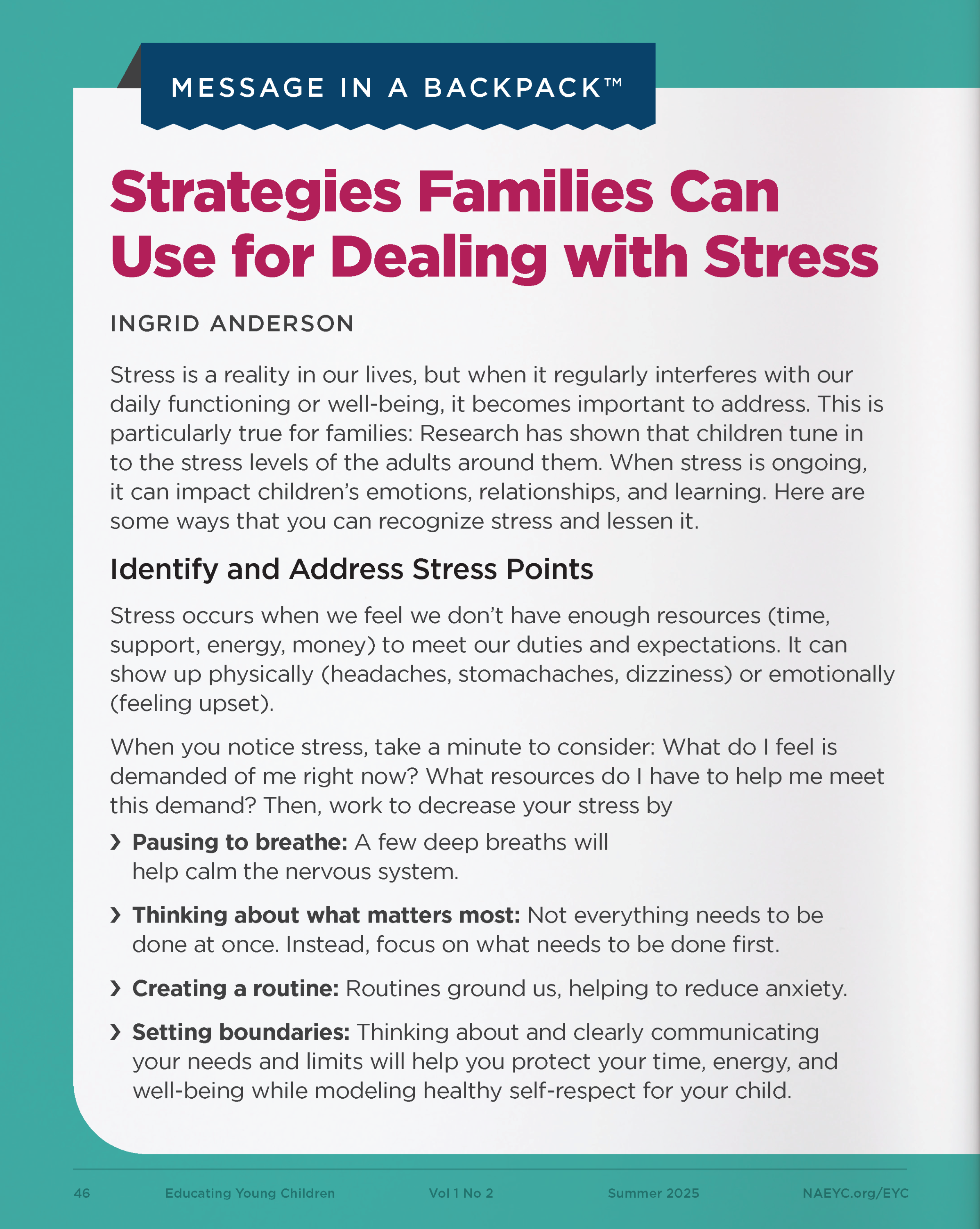Message in a Backpack™. Strategies Families Can Use for Dealing with Stress

You are here
Stress is a reality in our lives, but when it regularly interferes with our daily functioning or well-being, it becomes important to address. This is particularly true for families: Research has shown that children tune in to the stress levels of the adults around them. When stress is ongoing, it can impact children’s emotions, relationships, and learning. Here are some ways that you can recognize stress and lessen it.
Identify and Address Stress Points
Stress occurs when we feel we don’t have enough resources (time, support, energy, money) to meet our duties and expectations. It can show up physically (headaches, stomachaches, dizziness) or emotionally (feeling upset).
When you notice stress, take a minute to consider: What do I feel is demanded of me right now? What resources do I have to help me meet this demand? Then, work to decrease your stress by
- Pausing to breathe: A few deep breaths will help calm the nervous system.
- Thinking about what matters most: Not everything needs to be done at once. Instead, focus on what needs to be done first.
- Creating a routine: Routines ground us, helping to reduce anxiety.
- Setting boundaries: Thinking about and clearly communicating your needs and limits will help you protect your time, energy, and well-being while modeling healthy self-respect for your child.
Make Time for Play
Play is not just for children—it can be a powerful tool for adults to build resilience and relieve stress. It often includes movement and laughter, which help reset the body and mind. The key is to engage in play with openness and curiosity. Partner with your child by following their lead, being creative together, and finding joy in everyday activities.
Take Care of Yourself
When you care for yourself, you help create predictable and calm environments for your children. The most common form of self-care is setting aside time for yourself, but other activities can reduce stress and rejuvenate you:
- Keep a list of what interests you throughout the day (listening to music, moving your body), then take time to do those things.
- Celebrate moments of joy and curiosity. This will help you shift focus away from stress and improve your sense of balance.
- Feel gratitude for those around you. This builds connections and serves as a buffer from stress.
Identify Resources
Make a list of the people in your life who you can tap for guidance and encouragement. Look for community organizations, networks, or local groups that support your interests and needs.
Stress is a natural part of life, but we struggle to cope when it overwhelms us. The practices outlined here can help you learn to manage it, creating a stronger and healthier family environment.
Download this issue's Message in a Backpack™ here!
Photograph: © Getty Images
Copyright © 2025 by the National Association for the Education of Young Children. See Permissions and Reprints online at NAEYC.org/resources/permissions.
Ingrid Anderson, EdD, is associate professor of practice, infant mental health, at Portland State University’s College of Education.
